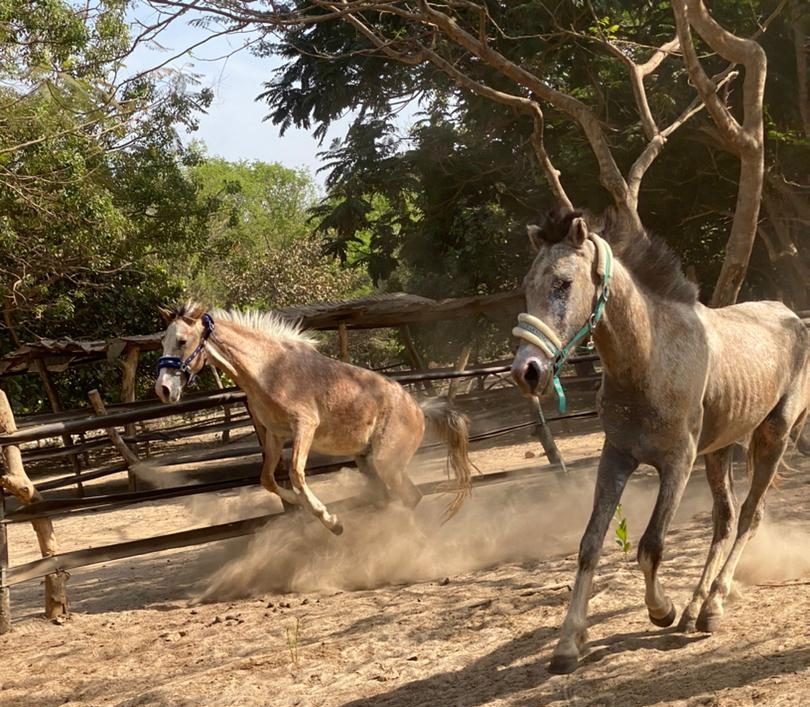A volunteer from The Gambia Horse and Donkey Trust shares their insight into assisting the charity
Volunteering for an international equine welfare charity sounds like a dream role to many horse lovers, but this role is not for the faint hearted and you will experience sights and situations that you never even imagined possible.
The Gambia Horse and Donkey Trust (GHDT) centre is nestled in the edge of the forest, alongside the River Gambia. As you drive through the gates you are welcomed by a sight of animals everywhere; camels and donkeys happily playing together to the left, recovering horses and donkeys in a paddock to the right and trotting up the sandy drive towards you with wagging tails and wiggly bottoms are more dogs than you might care to count. Their reasons for being there are self-evident, with many missing limbs, eyes, ears or sporting some impressive scars where old injuries have now healed. The ethos of this charity is that every life matters, and their team go above and beyond to try to help any animal who comes through the centre.
There is no such thing as a dull day. The team are on call 24/7, taking turns to man the emergency phone which rarely stops ringing. The GHDT operate a busy animal hospital, caring for approximately 80 injured or unwell horses and donkeys at any one time plus roughly 100 dogs and 60 cats! They even have the occasional monkey, turtle or civet cat patient.
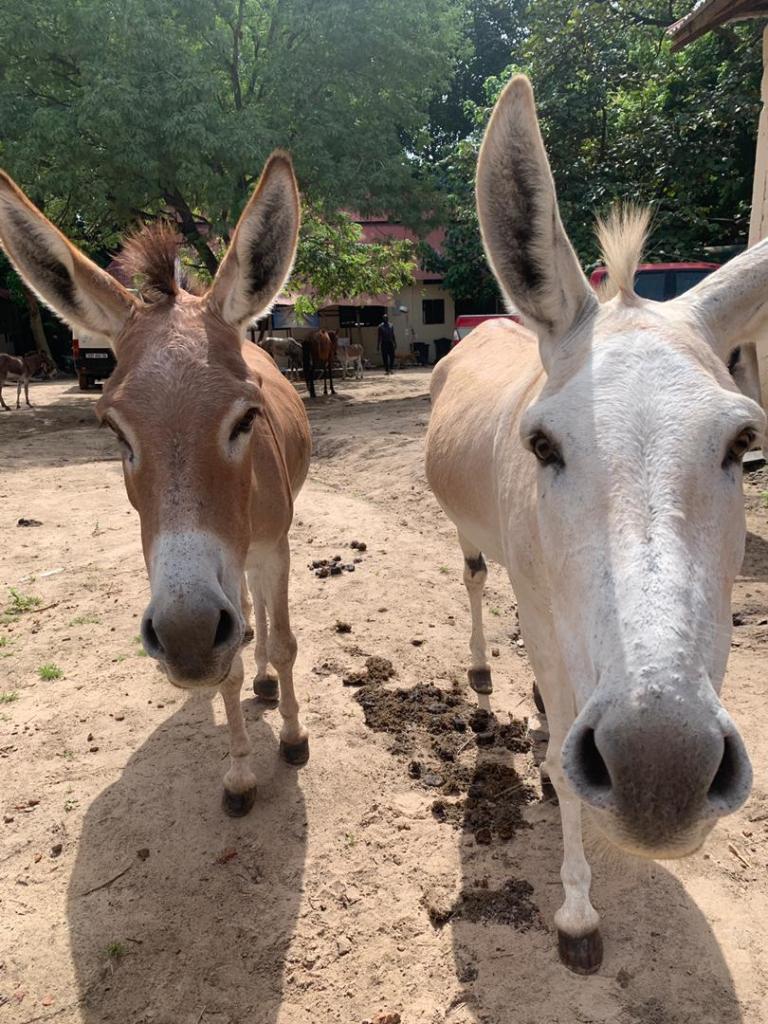
GK and Jeffrey – some of the donkeys who have long term sanctuary with the charity
After an early start to walk the many dogs who have permanent sanctuary here, the morning is spent checking on all the patients and helping the Gambian team of staff with changing dressings, applying bandages and offering lots of loving care to the equine patients. The patients here are suffering from some of the most severe conditions you might ever encounter, from horses with extensive burn injuries to donkeys with tetanus, broken limbs to excruciating fistulous withers (injuries caused by poor harnessing). Miracles are performed here on a daily basis. In a country where euthanasia is often not an option, either due to owner religion or because the owner has put their entire life-savings into purchasing a working equine and cannot bare to agree to euthanise when they feel there may be even a tiny chance of survival.
Where this is the case, the charity works hard to provide the animals with as much pain relief and comfort as possible whilst treating them. The care of the animals comes first, with the staff and volunteers not stopping for their own breakfast until well after the animals have been provided for.
After breakfast the day takes on a variety of forms, depending on the situation; some days school or college groups are welcomed for educational visits, gaining essential hands-on experience with animals which is unavailable anywhere else in the country but is so vital to inspire future generations of animal lovers. Other days are spent delivering education, equipment and veterinary care in local communities where many owners will attend with their working horses or donkeys. Many of the animals we see are in poor body condition and they often have harness sores. This is not a result of cruelty, but a simple lack of knowledge and the difficulty of keeping equines healthy in a challenging environment where fatal diseases are rife. Tsetse flies are commonplace and they pass on trypanosomiasis, a parasitic disease which causes serious illness and death in some cases. Vets are not easy to find in The Gambia (there is no vet school), hence the charity being extremely busy with desperate owners seeking help for their animals.
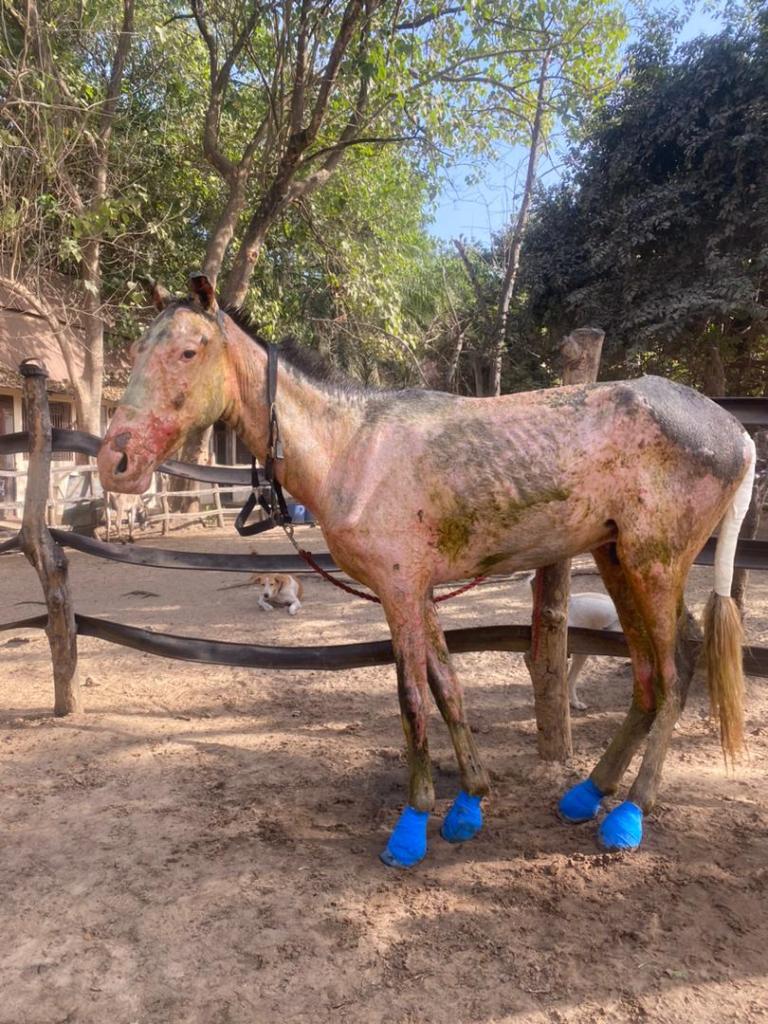
Matata was seriously wounded in a stable fire, but has made enormous progress
The climate makes the challenging work even harder – it is hot all year round, temperatures regularly reaching into the 40’s (centigrade). The environment is extremely hot and dusty and the feet of a volunteer may never quite reach the same level of cleanliness that they started with, again!
Volunteer vets and vet nurses are pivotal to the work of this charity, with long term managerial and administrative volunteers also being extremely valuable. All volunteers promise to leave behind as much as they take away, providing essential training and education for the GHDT staff team as well as other Gambian paraprofessionals and animal owners.
At the end of a gruelling day, a well-earned drink is enjoyed on the balcony, overlooking the many animals residing at the centre. A cold shower is hugely welcomed, just in time to have 5 minutes to sit down before the next emergency call comes in!
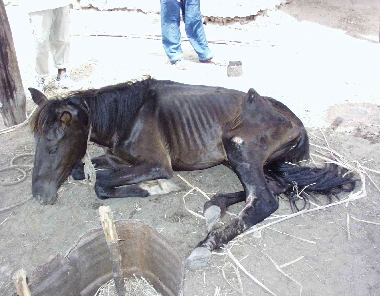
Laz, the charity’s founding horse, pictured when he was first rescued
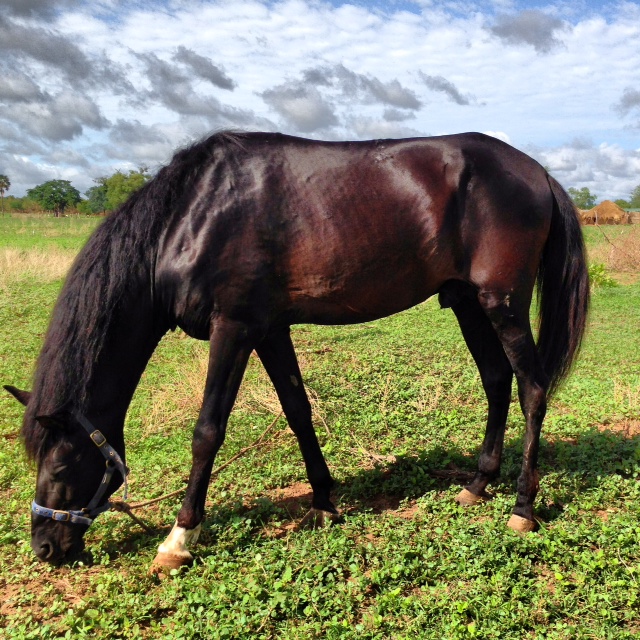
Laz recovered and enjoyed two decades in the charity’s care
To find out more about the charity, visit gambiahorseanddonkey.org.uk
Lead image of Hakuna and Matata. Matata was a patient who came to the charity with severe burns as a result of a stable fire. He and his friend Hakuna have both now recovered from their severe injuries. Hakuna has returned home to his owner and Matata will stay a little longer until more of his hair grows back but he is a “very happy soul”. He lost his ears in the fire and was blind for a couple of weeks, but has since regained his sight.

